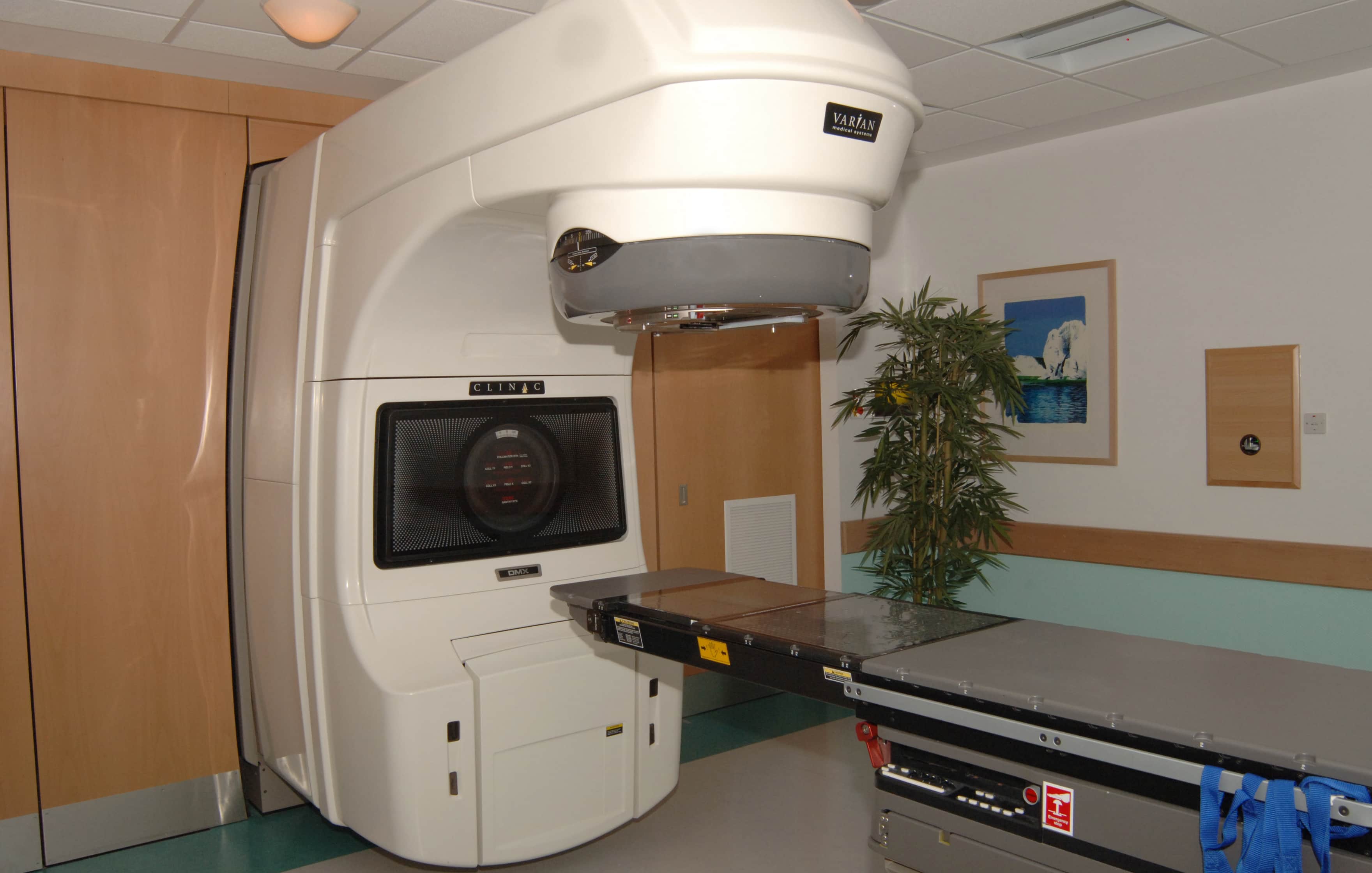
Our scientists established radiotherapy as one of the most effective treatments for cancer. Below are a few of our most important discoveries.
1923 – We support some of the earliest research into the treatment of cancer with radiation, including awarding our first grants for the purchase of radium to treat cervical cancer.
1980s – We play a crucial early role in developing a precisely targeted radiotherapy known as intensity modulated radiotherapy (IMRT). By varying the intensity of the rays within individual beams of radiation to create 3-D fields, doctors maximise the dose of radiation to a cancer while reducing damage to surrounding healthy tissues.
2000 – We open the first UK clinical trial of IMRT for prostate cancer. Because this treatment is more targeted, it reduces side effects for these men with prostate cancer.
2009 – Our researchers show the benefits of using IMRT to treat head and neck cancer – fewer patients experienced the side effect of dry mouth when having this treatment, compared to conventional radiotherapy.
2008 – Our scientists show that people with bladder cancer who aren’t well enough or opt not to have surgery can have radiotherapy instead. Then in 2012 we fund a large trial which shows that adding low doses of chemotherapy to this radiotherapy option means patients with aggressive bladder cancer were 50% less likely to see their disease come back.
2016 – Men could be saved from extra hospital trips after our large clinical trial shows the benefits of giving fewer, stronger doses of radiotherapy for prostate cancer.
2017 – Lung cancer patients can decide with their doctor on the radiotherapy course that’s most suited to them, thanks to our work. Results from the CONVERT clinical trial show that, when combined with chemotherapy, halving the treatment time by giving radiotherapy twice daily is just as good as once-daily doses for patients with a certain type of lung cancer.

Thanks to research, we’ve helped shape modern radiotherapy that's used to treat patients today.

Meet people like Oliver who have experienced first-hand how our research is making a difference. The life-saving research we do wouldn’t be possible without your support.
Want to find more information about our research or radiotherapy?